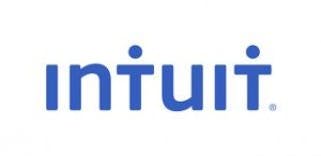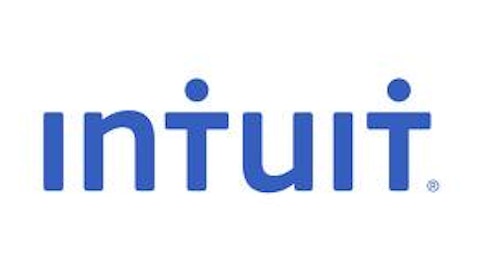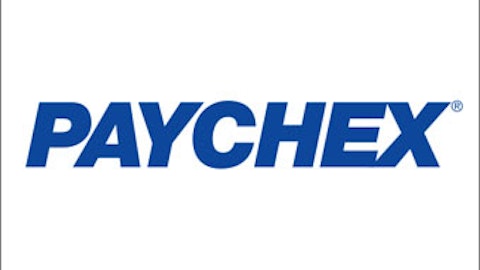Three companies that will benefit from the increasing demand to file taxes electronically include Intuit, Inc. (NASDAQ:INTU), H&R Block, Inc. (NYSE:HRB), and Blucora Inc (NASDAQ:BCOR). Importantly, these companies have little international competition as they operate in a highly regulated industry – taxation.

Valuation and fundamentals
Intuit, Inc. (NASDAQ:INTU), H&R Block, and Blucora Inc (NASDAQ:BCOR) (formerly InfoSpace) have 296.4 million, 271.3 million and 40.7 million shares outstanding, respectively. The table below compares some major valuation and fundamental measures of these three companies and the S&P 500.
| INTU | HRB | BCOR | S&P 500 | |
| Market capitalization | $19.6B | $6.9B | $0.6B | $13,500B |
| Enterprise value [EV] | $19.1B | $7.0B | $0.5B | n/a |
| EBITDA Margin | 30.0% | 25.1% | 17.5% | 20.5% |
| Beta | 0.7 | 0.6 | 1.1 | 1 |
| PE ratio (est. current fiscal year) | 19 | 14.9 | 15.7 | 13.8 |
| Fiscal year-end | 07/31/13 | 04/30/13 | 12/31/12 | n/a |
| PEG ratio | 1.9 | 1.3 | 0.3 | 1.7 |
| Dividend yield | 1.0% | 3.2% | nil | 2.3% |
| EV/EBITDA | 14.6 | 9.2 | 7.5 | n/a |
| Price-to-book value | 6.9 | 7.5 | 1.6 | 6.5 |
| Price-to-sales | 4.6 | 2.3 | 1.7 | 1.4 |
| Price-to-CFO | 16.3 | 18.2 | 13 | n/a |
| 1-Year total return | 16.5% | 57.0% | 29.3% | 11.8% |
| Employees (recent fiscal year-end) | 8,500 | 2,500* | 198 | n/a |
Source: Thomson Reuters, SEC Filings, Capital IQ, author’s calculations; EBITDA – earnings before interest, tax, depreciation, and amortization; PEG – price-to-earnings-to-growth; CFO – cash flow from operations; *excludes seasonal employees.
It seems from the above table that Blucora Inc (NASDAQ:BCOR) is the most appealing investment based on the company’s PEG, EV/EBITDA, price-to-book value, price-to-sales, and price-to-CFO ratios. Blucora has two major segments – its legacy search engine business and the tax software service, TaxACT. Blucora acquired TaxACT in early 2012 for $287.5 million in cash. For the first nine months of 2012, Blucora revenue from the search engine business were 80% of total revenue with the remaining 20% of revenue from tax preparation. Interestingly, the tax software provided 43% of the company’s operating income while search contributed 57%. While TaxACT is a smaller (in revenue) it contributes almost equally to Blucora’s bottom line.
Somewhat troubling is the decrease in revenue for TaxACT. For example, according to documents filed by Blucora with the SEC, when it acquired TaxACT, TaxACT had $78 million in revenue for the twelve months ending Sept. 30, 2011. This is considerably higher than the TaxACT revenue for the nine months ending Sept. 30, 2012 of $61 million. While the former period includes an extra three months, TaxACT has almost minimal revenues in the last three months of the year as most tax activity has concluded by that time. The reasons could be that most acquisition have a bumpy start among operational and competitive problems.
Intuit, Inc. (NASDAQ:INTU) and H&R Block, Inc. (NYSE:HRB) shares are not as attractively priced based on PEG, EV/EBITDA, price-to-book value, price-to-sales, and price-to-CFO ratios. However, they have EBITDA margins that are superior to that of Blucora. Intuit, Inc. (NASDAQ:INTU) sells primarily tax (Turbo Tax), accounting software (QuickBooks), and financial services (Mint and Quicken) while H&R Block offers primarily tax services and software and operates brick and mortar branches.
Intuit is the most expensive stock but it has the most diverse stream of revenue. For example, for the six months ended Jan. 31, the company recorded $1.6 billion in revenue comprised of financial management solutions ($388 million or 24% of revenue), employee management solutions ($279 million or 17.3%), payment solutions ($231 million or 14.3%), consumer tax ($252 million or 15.6%), financial services ($186 million or 11.5%), accounting professionals ($155 million or 9.6%) and other ($124 million or 7.7%). Unfortunately, the consumer tax business experienced a decline in sales of 25% from the same period last year.
H&R Block reached revenue of $196.3 million from its tax services for the six months ended October 31, 2012. This is an increase of about 1.5% compared to the same period last year. A small increase, but nevertheless an increase.
Conclusion
While all three companies offer exposure to the growing field of electronic tax filing, Intuit, H&R Block, and Blucora have different approaches to providing tax services. Intuit provides mostly an installation-based tax software that is also a relatively small part of Intuit’s business portfolio. The company offers a number of other services that compete directly with larger companies, especially in financial services and business management software. While this is good for diversification, it could mean that the company has to compete with larger and better companies. Also, the sharp decline in tax software sales indicates that taxes are not the strongest area for Intuit.
H&R Block and Blucora offer on-line and installable tax software. However, H&R Block also offers in-person tax services, which also provides the opportunity to sell additional products. Also, H&R Block’s focus on and experience in tax services make it the best bet to gain exposure to the electronic tax preparation service industry. However, its stock has risen by 57% in the past year.
To conclude, there is no clear winner of the three companies discussed above. Investors considering to profit from the growing e-filing software industry before the current tax season is over may want to allocate funds across these three companies in order to reduce individual company risk.
The article Three Companies to Consider Before April 15 originally appeared on Fool.com and is written by Delian Naydenov.
Copyright © 1995 – 2013 The Motley Fool, LLC. All rights reserved. The Motley Fool has a disclosure policy.





